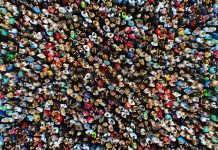I remember precisely the moment and the place where I realized that I was free to choose what kind of person I want to be. However, this construction requires courage, suitable materials and the perseverance of not leaving the project in ruins when there are deviations from the plan.
I began to believe in the power of journaling when I reread some personal notes I had written, with painstaking commitment some twenty years before, during my adolescence. I thought my memory was so good that I would recall perfectly not only what I had written, but also the places on the page where those “secrets” that I had once guarded, and were now expected to be embarrassing, were placed. That’s what I was preparing for and that’s what I was ready to take on. But when I opened the notebook, I saw those immaturely rounded letters forming a different kind of vulnerability. Yes, I found the “secrets”—they were there—but I had not even for a moment expected to notice (even though in the end it was to be expected) that my parents’ unfortunate flaws were so much reflected in my way of seeing life.
Until then, I had considered myself quite an independent child, one who had carved out an identity for herself, drawing on carefully selected patterns from the books I would borrow, in stacks, from the library and which I was always late to return. But I was wrong. On the pages of that diary I could see a teenager who was expressing her most personal feelings in the words that other people had chosen for her.
Appropriating an evaluative matrix upon which to build one’s worldview is part of the natural and desirable process of education. But it is strange how discreet this process is and how little, in reality, we know ourselves due to the fact that, in everyday life, we do not have the ability to instantly separate our identity into core and external influences. But we can do this by reading the fingerprints we left written many years ago. Because over time, things tend to become clear to a level we do not even expect they will. Old feelings come back to life, as if everything happened yesterday, but their intensity is tempered by the consumption of facts. Compared to when we were simply in action mode, we now know how the story ends and we know that the fears, worries, sadness and even the pain of that time is not final. In fact, viewed from the vantage point of the extra years, they all seem so small and unjustly devouring our joy. It’s good if this insight sows in us the suspicion that even the great dramas of the moment will not turn out to be as important as they now claim to be.
***
It is said that my generation, the millennials, tends to view identity as an issue of building an identity that is as accurate as possible to our real self, an identity that is simply core, plus only that part of the environmental influence that has been sorted, verified and re-verified for authenticity. Those of my generation want to discover themselves, to appreciate what they have discovered, to express who they are and to receive validation from others regarding the value of this identity, as well as to do something that will outlast them.
Though essentially an ideal worth exploring, this motto of existence fails in thousands of ways due to details that are too small to be taken into account from the beginning. How do I know that what I am discovering is truly my authentic self? When the two come into conflict should I follow my feelings or the reason that keeps them in check? Should I consider what I do during most hours of the day (my job) or should I take into account what I would like to do most hours of the day if I had all the money in the world (my dreams)? Who do I become if I put all the influence of my environment aside? Who would I be if I had no constraints? How do I know who I might be if I don’t even know who I am now?
Philosophers have brought the issue of personal identity to a paradoxical point, because, no matter how much it has tried to juggle the data, identity remains an illusory fact: a reality not anchored in anything numerically measurable. So much the bolder seems the Christian vision that our identity is waiting not so much to be discovered as to be received directly from its Creator, Who—surprise!—is not us and Who, unlike us, can guarantee His permanence in time.
American author Brennan Manning advised his readers to define themselves, radically, as “beloved by God. This is the true self. Every other identity is illusion.” He also postulated that “the deepest notion about me is that I am deeply loved by Jesus Christ and that I have done nothing to earn or deserve this love.”
Manning was convinced that all spiritual flaws, the essence of sin itself, is not trusting that God loves us, not because we have done or not done something, but because love is His very nature. As a result, Manning believed that emotional healing and the fulfilment of the soul resulted from regaining confidence in the unconditional love of the Father, not for mankind in general, but for ourselves—not for who we should or could be, but for who we are right now.
***
As a millennial, I do find that my identity occupies a central place in the meaning of my existence. But as a Christian millennial, I find that this does not make me egocentric and narcissistic as long as the anchor of my identity is God’s love for me. As long as I allow His love to heal my heart, I am calm and receptive to others’ need to be healed. I am not afraid of the changes I am going through, because I know that He who is most important does not change. I am not guided by the opinions of those around me and I am not intimidated, not even by my opinion of myself, because none of this can be more correct than His opinion. This is my current journal entry: I want to see His love more clearly, because it enlightens my meaning.
Alina Kartman is a senior editor at ST Network and Semnele timpului.



















